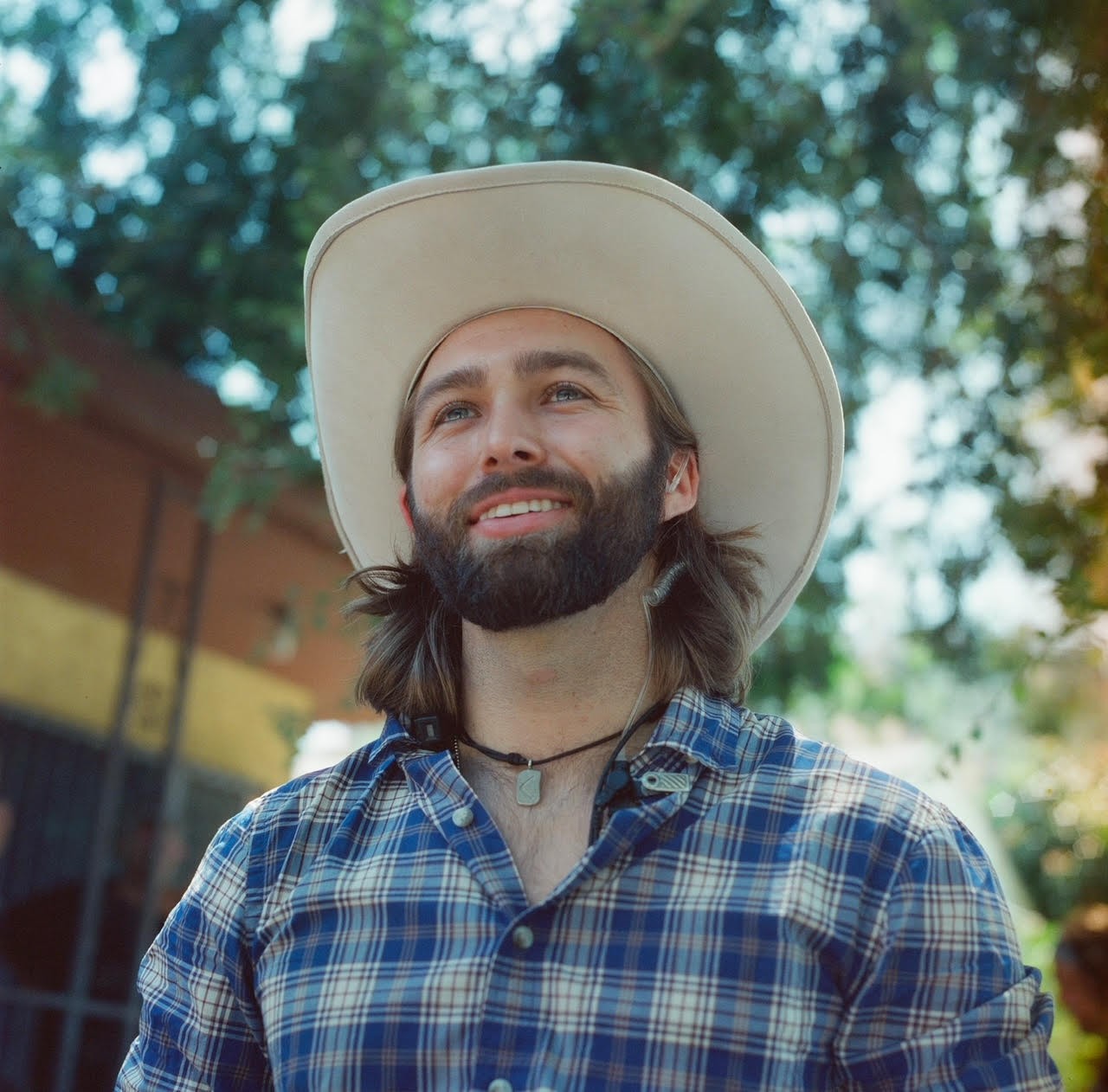Alright – so today we’ve got the honor of introducing you to Rayce Lopez. We think you’ll enjoy our conversation, we’ve shared it below.
Hi Rayce , thanks for joining us today. When did you first know you wanted to pursue a creative/artistic path professionally?
I’ve always loved puzzles and mysteries. To me, producing is just solving constantly changing puzzles. I’ve known I wanted to be an actor since I was in junior high but I never planned on becoming a producer. It started on a whim. My best friend and roommate, Zack Hosseini and I started developing a film during the Covid lockdown and we liked the project so much we decided to wait so we could pull some funding together and put together a really amazing team. That’s how Chaos Theory Media started. Zack has always said “producing is just putting out fires,” but it wasn’t until our second film that I really figured out what that meant.
It was February 2023 and LA was getting hit with the biggest storm in over forty years. Streets were flooding, trees were being blown over, buildings were losing power (including the bar we were shooting at). It was the closest this California boy has ever gotten to experiencing a hurricane.
One of the things we had to do was put up signs to block off a parking lot the night before our shoot. The city suggested attaching the signs to traffic cones but there was no way traffic cones were going to survive the storm. I managed to wrap fishing net around two light poles pulled across the length of the parking lot using just barbed wire so I could hang the signs from the net. At one point I had the wire wrapped halfway up my arm, barely standing on the base of the light pole, hanging over the edge trying to tie the wire tightly enough that the net wouldn’t collapse. It took me almost two hours and by the time I was done I couldn’t feel my fingers and I was completely soaked to the bone. But I loved every second of it.
There’s a hundred little things I did over the course of that project that helped make the movie happen, but that was the moment I fell in love with producing. It was grueling and miserable but seeing everything come together and watching the magic once we started shooting made everything worth it. That’s when I knew I wanted to spend the rest of my life making movies with these people. Acting will always be my first and foremost passion, but there’s nothing like being faced with an impossible task and having to come up with the solution.
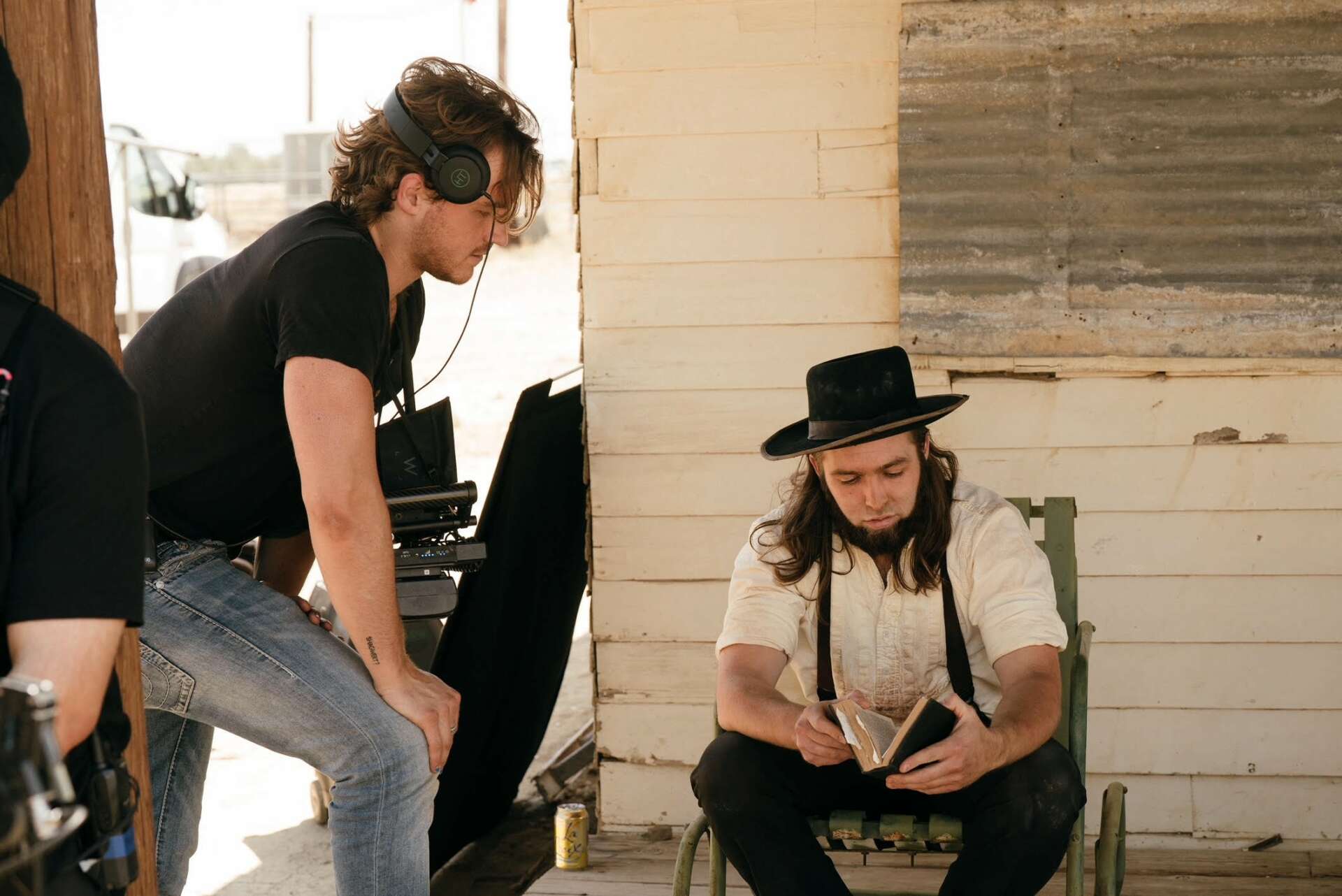
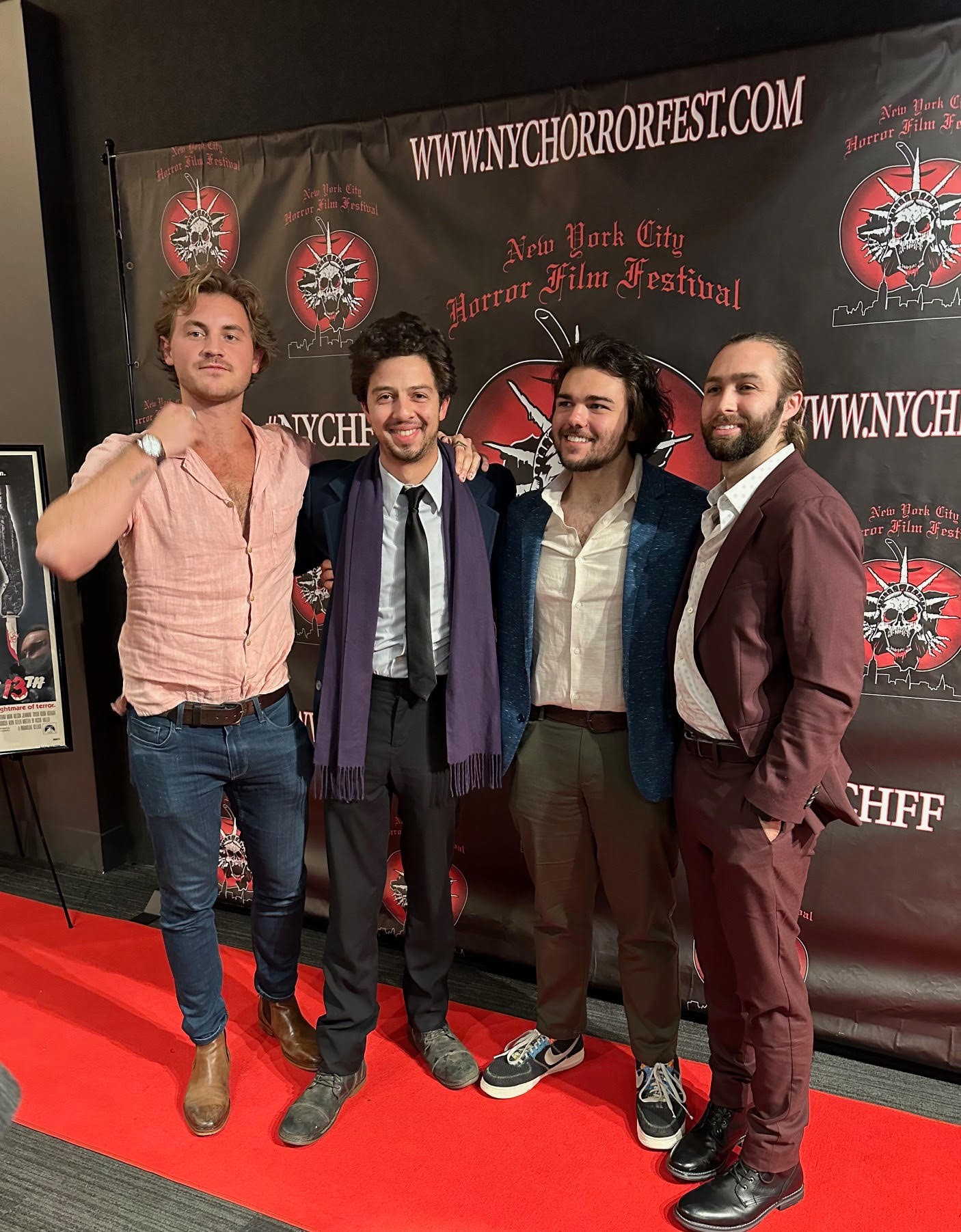
Rayce , before we move on to more of these sorts of questions, can you take some time to bring our readers up to speed on you and what you do?
With a name like Rayce, I think I was always destined for a creative career. I grew up in the bay area as the only child of an optometrist mother and police captain father. They’ve always been incredibly supportive of all my creative endeavors and that allowed me to really find my voice as an artist. I think at heart, they’re creatives too. My dad was a unicorn of a cop. He grew up in the mission of San Francisco getting picked on by the cops and became one so he could be the change he wanted to see. His work ethic and willingness to go against tradition are things I’ve tried to emulate in my own life. I always felt safe taking risk knowing that they’d be supporting me along the way. I have a tattoo on my arm that says “dare to fail” because the only way you can grow is by taking risks. I started acting when I was in junior high. It was a play called Arsenic and Old Lace and I had a small part as a quirky mad scientist. But I was hooked. I stuck with theatre through high school and gave up sports to continue on the path. I got extremely lucky when I was accepted into the BFA Acting program at USC, which is where I met the most influential people on my growth as an actor. The program turned me into who I am today.
But the most important person I met at USC was the roommate USC assigned me freshman year – my best friend, producing partner, and still roommate, Zack Hosseini. We instantly hit it off and started making movies together. Our fun little class projects turned into full scale productions that we now do with our production company, Chaos Theory Media.
While I’ve known I wanted to be an actor for a long time, producing happened much more by chance. During the Covid lockdown, Zack and I decided to make a film with the time we had. He started writing a script and we would spend hours bouncing ideas around for the story and character. Eventually, we fell in love with the script and decided we should invest in making it a real film. So we put together a team and shot our first real movie, A Cotton Moon. That team, which includes Danny DiTorrice, Gehrig Campbell-Dempsey and Morgan Rutter, became Chaos Theory. They’ve become my second family and any success I’ve had is thanks to those four and the countless people I’ve been lucky enough to work with.
This year, Chaos Theory produced three movies and are in the middle of developing a handful of others for 2024. Art is the greatest vessel for change and reflection. With a leaning towards horror and genre films, we strive to break stereotypes and tell stories that show the darker psychology of humanity, and how we all share a common experience. More than anything, we want to leave a lasting impression.
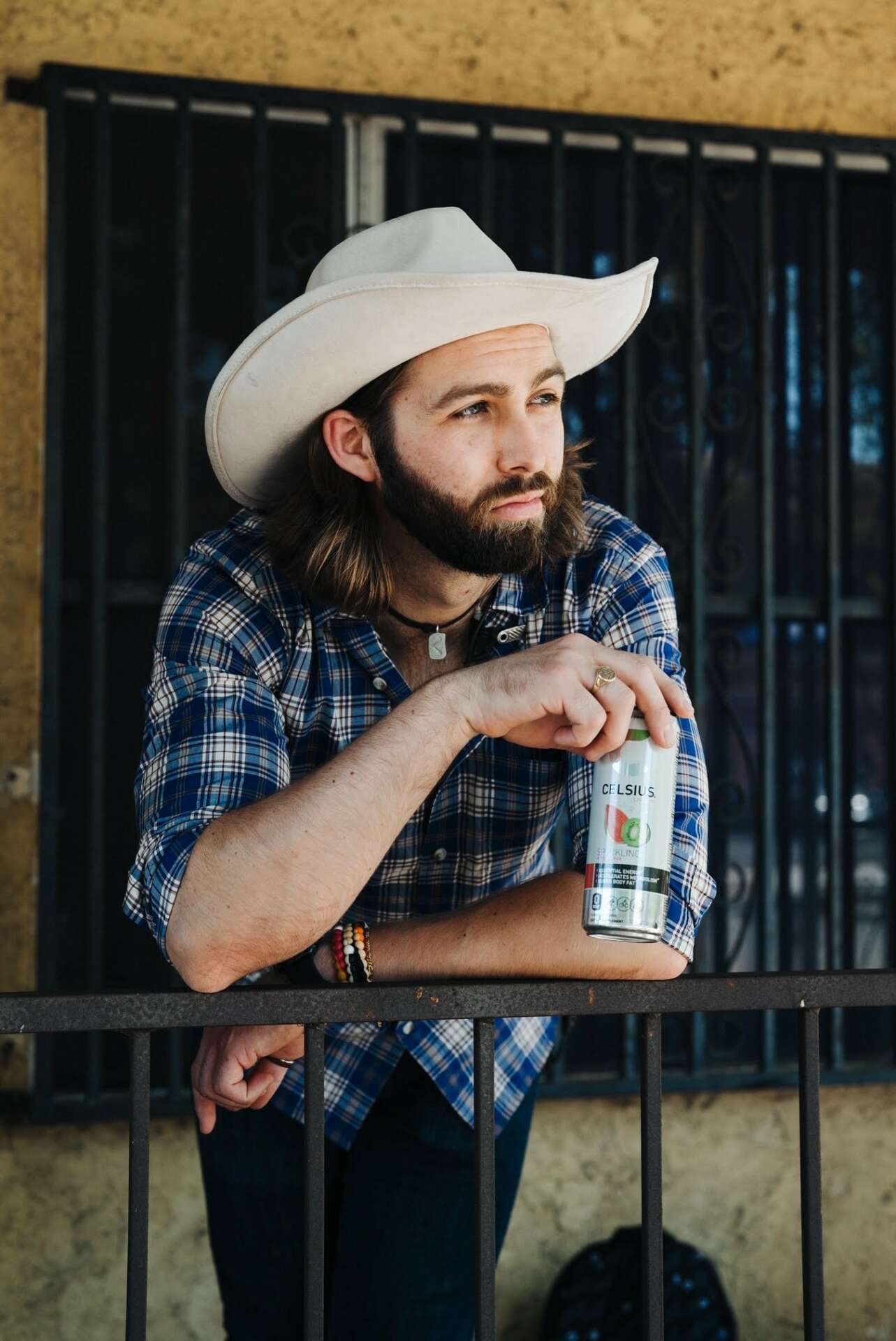
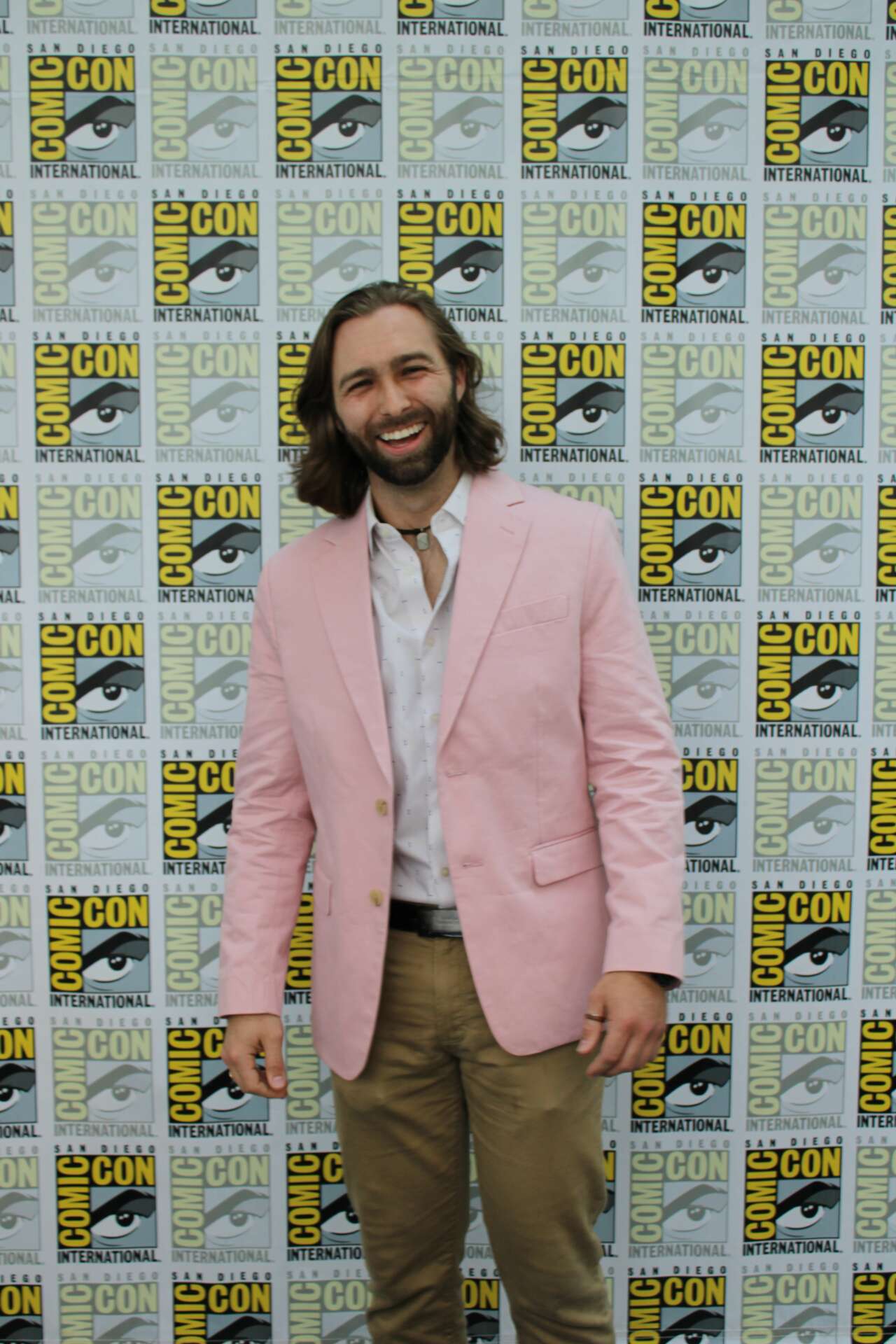
We often hear about learning lessons – but just as important is unlearning lessons. Have you ever had to unlearn a lesson?
As an actor, I’ve played a number of characters that had very different beliefs than my own. I was taught at USC to never judge my character and to find the thread that you can relate to them with. My most challenging role to date was as Deacon in A Cotton Moon. He was the opposite of everything I stood for. One of the conversations we had while working on the film was about how someone could believe the things he did. It felt very relevant to the 2016 and 2020 presidential elections. How could so many people vote for such a terrible candidate? How could so many people fall be influenced by media that told blatant lies? I had so many conversations – uncomfortable ones – with people who had different beliefs than I did to try to understand. And I asked questions. Hundreds of questions. I wanted to understand. I learned that the more I got to know someone, the more I realized how similar we were. It shocked me. The conclusions we came to about politics and religion might be different, but at our core, we wanted the same thing. I may disagree with what they believe, but I at least understood why they believed it. That was eye opening to me. That’s how I found the character.
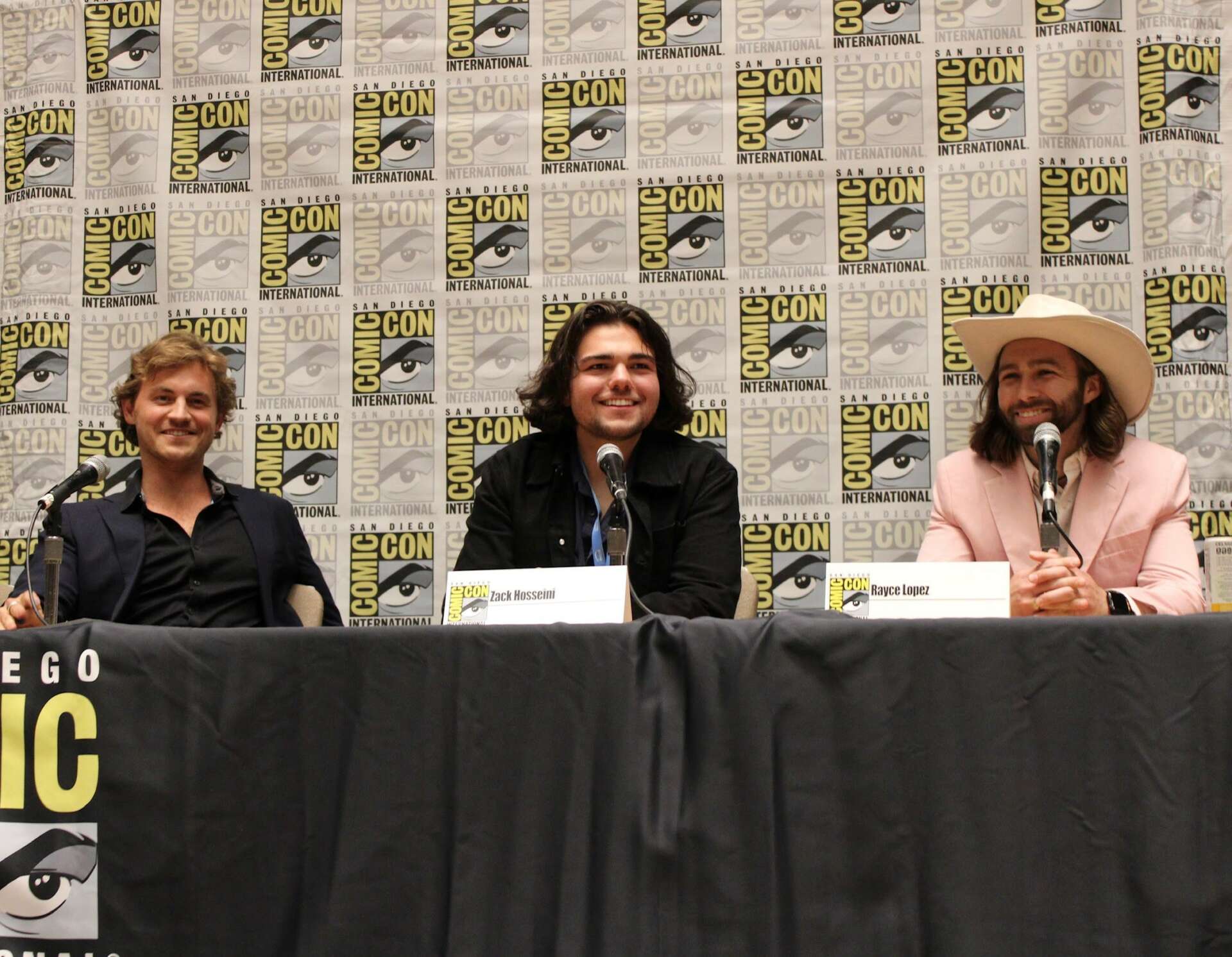
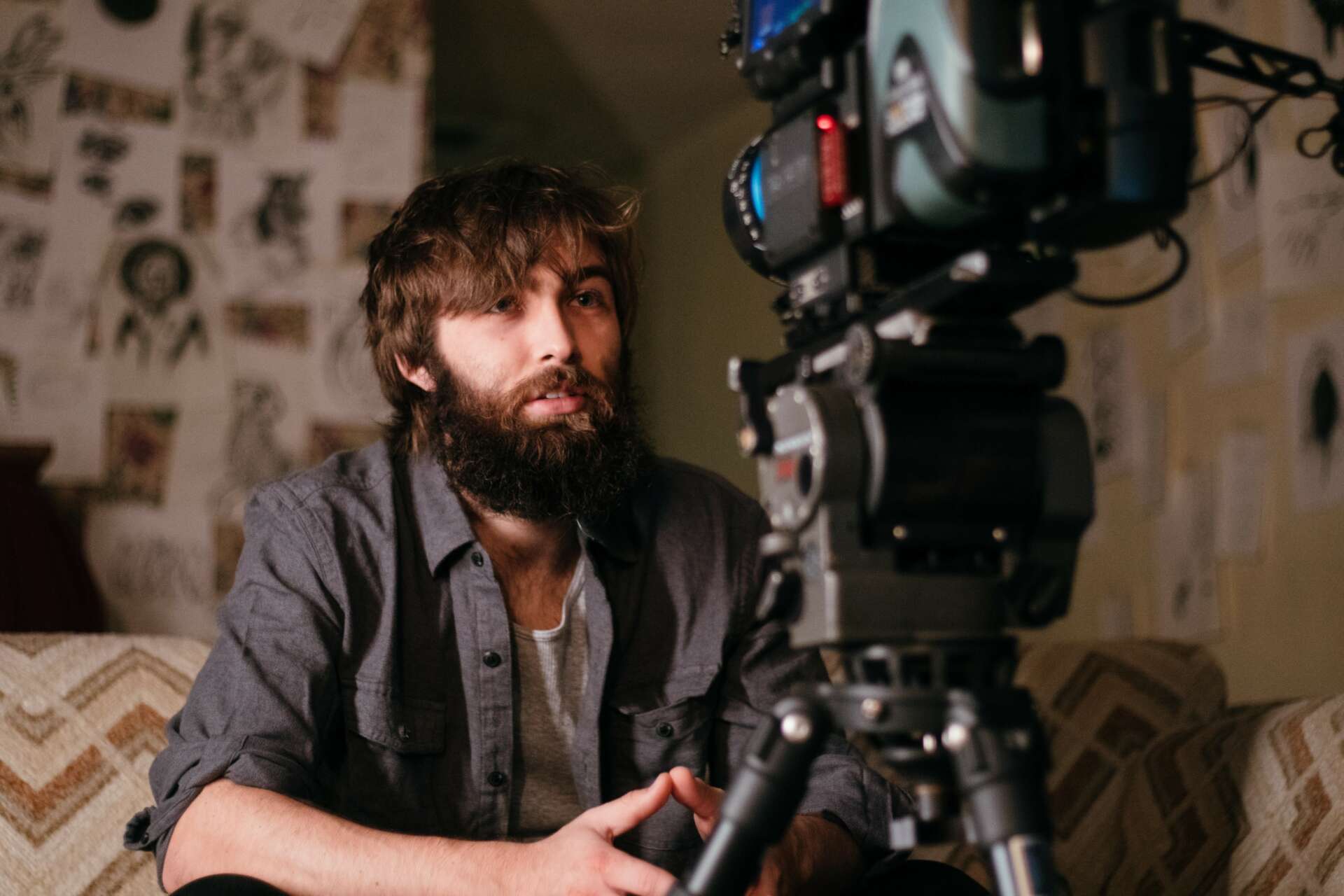
In your view, what can society to do to best support artists, creatives and a thriving creative ecosystem?
I think artists are essential to not just society, but to history. The oldest documentation of history are drawings in caves. Books and texts documenting the course of history. But art doesn’t just preserve history, it’s a reaction to what society looks like and to the changes we need. Artists see the deepest parts of humanity in everything and capture it. They reflect society back at itself and ask: “Do you like what you see?” Change starts with artists. I’d argue that they are the most important piece of a society’s success are it’s artists. They’re always at the forefront of change. In the film industry, you notice a lot of British and Australian actors rising in prominence. The reason for that is that arts are not only encouraged, but required as part of the education system. They support artists and fund resources for artists from the earliest stages of education. On the other hand, funding for the arts is one of the first things the United States cuts from schools. How can we as a country possibly expect to compete and have artists survive when they aren’t given the support and resources they need? In centuries past, royals and elites would finance artists and some of the greatest works we have came from that support. Look no further than Michelangelo’s David or Da Vinci’s Mona Lisa. That’s what we should be doing as a society.
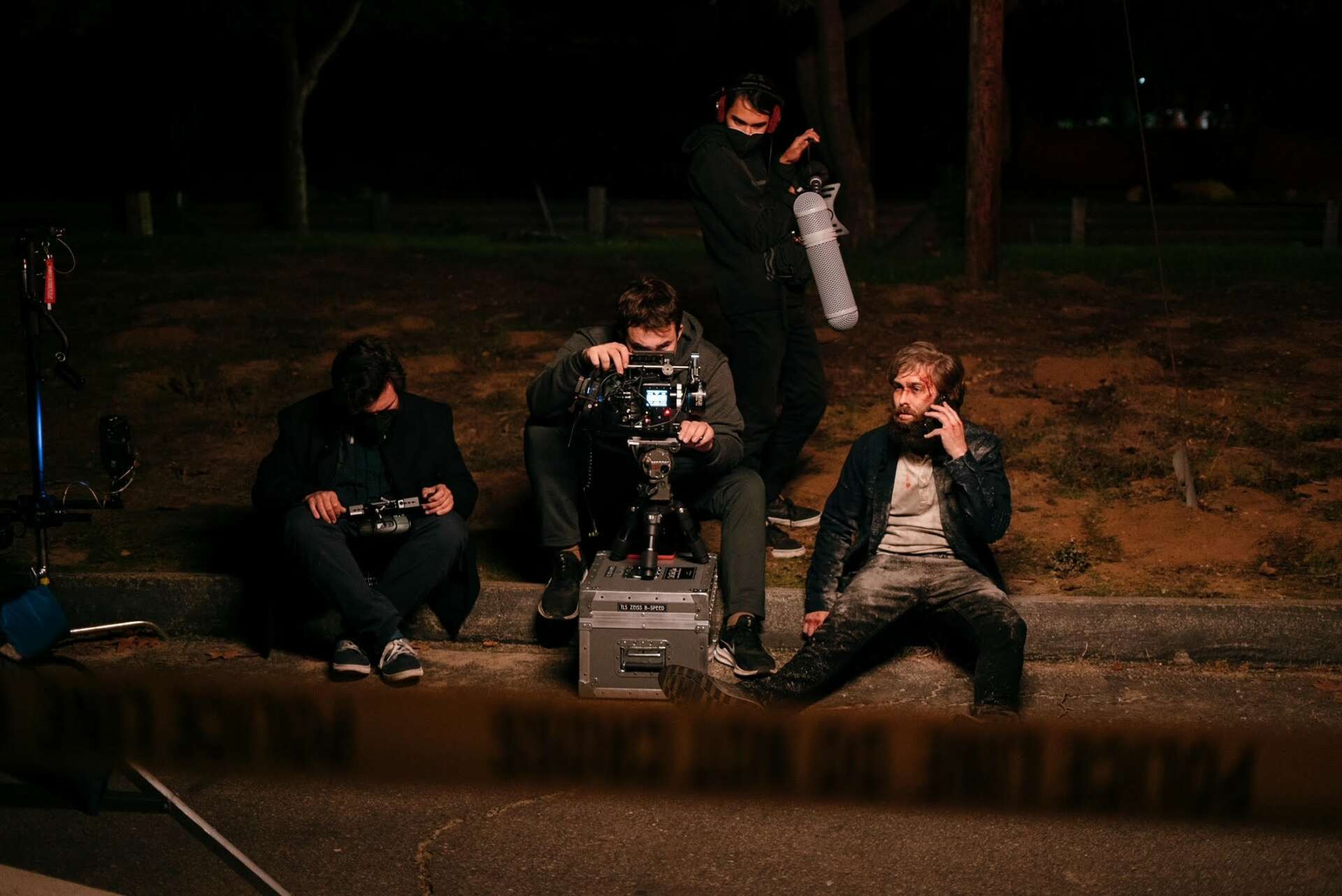
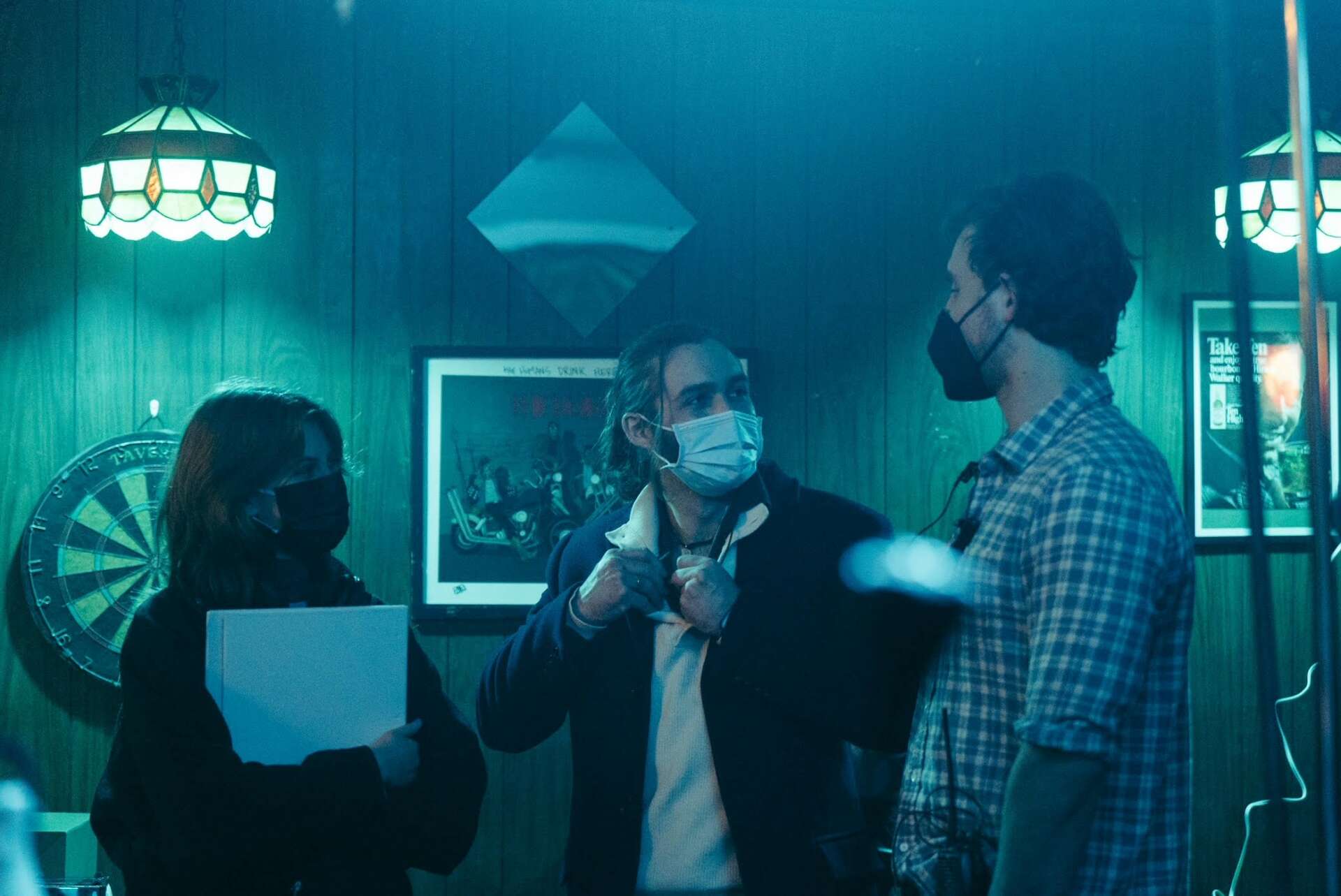
Contact Info:
- Instagram: @thewoflfking33 or @chaostheorymedia
Image Credits
Emily Krisky


